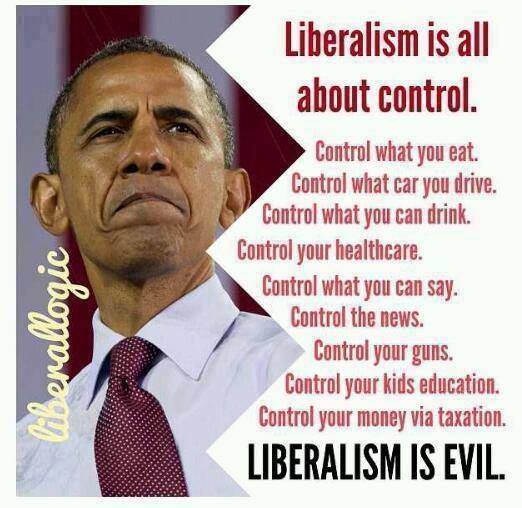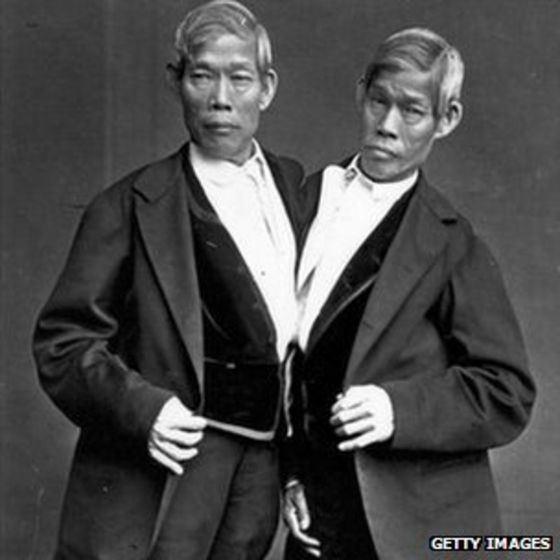No constitutional right to carry guns in public, court rules
By Bob Egelko
Updated 7:48 pm, Thursday, June 9, 2016
Photo: Lauren McGaughy
A federal appeals court upheld California’s handgun permit law Thursday, requiring gun owners to seek approval from local law enforcement agencies to carry their weapons in public.
In a major victory for gun control advocates, a federal appeals court on Thursday upheld California’s handgun license law, saying there is no constitutional right to carry concealed weapons in public and setting the stage for a potential showdown in the U.S. Supreme Court.
“The Second Amendment does not protect, in any degree, the carrying of concealed firearms by members of the general public,” the Ninth U.S. Circuit Court of Appeals in San Francisco said in a 7-4 decision.
Federal Court conflict: no right to carry concealed weapon

The ruling upheld a century-old state law — which a previous court panel had declared unconstitutional — requiring handgun owners to obtain licenses from local law enforcement agencies before carrying concealed weapons in public. The issue could be headed for the U.S. Supreme Court, which ruled in 2008 that the Constitution’s Second Amendment protects the right to possess guns at home for self-defense, but has not said whether that right applies outside the home.
Several other federal appeals courts also have concluded that states can restrict carrying loaded weapons in public, but in 2012 an appellate panel struck down an Illinois ban on carrying concealed weapons in public. The Supreme Court often takes up cases to resolve conflicts in appellate courts.
‘Flawed ruling’
“This flawed ruling underscores the importance of the 2016 election,” the California Rifle and Pistol Association, which joined the challenge to the state law, said of Thursday’s ruling. “It is imperative that we elect a president who will appoint Supreme Court justices who respect the Second Amendment and law-abiding citizens’ right to self-defense.”
Attorney General Kamala Harris, whose office defended the state law in court, said the ruling “ensures that local law enforcement leaders have the tools they need to protect public safety by determining who can carry loaded, concealed weapons in our communities.”
Preserves state law
The ruling preserves a licensing system in California in which concealed handgun permits are virtually unavailable to anyone except law enforcement officers and security guards in most metropolitan areas, including San Francisco, and are issued in most rural and inland areas to any adult who asserts a need for self-defense and does not have a disqualifying criminal record. A contrary ruling would have made permits widely available statewide.
About 35,000 Californians held concealed-weapons licenses in 2011, according to the U.S. Government Accountability Office, and the number is likely to have increased substantially since then as gun sales have risen.
California is one of eight states that allow local governments to deny concealed-weapons permits. The ruling covers the nine states in the Ninth Circuit, including Hawaii, which is the only other state in the court’s jurisdiction that has a law like California’s.
The California law was challenged by two men who were denied concealed-weapons permits in San Diego and Yolo counties, and were joined by firearms advocates in their lawsuit.
Ruling in 2014
The court disagreed Thursday with a Ninth Circuit panel that ruled 2-1 in February 2014, that the California law violated the constitutional right to bear arms for self-defense. The law has remained in effect, however, while Harris’ office — not a party to the original case, but allowed to intervene — appealed to the full Ninth Circuit, which granted a new hearing before the larger panel, consisting of 10 randomly selected judges and Chief Judge Sidney Thomas.
The case, argued nearly a year ago, produced five separate opinions covering 89 pages. The seven judges in the majority were appointed by Democratic presidents, and three of the four dissenters were Republican appointees.
The majority opinion by Judge William Fletcher combed through the histories of the United States and England, dating to a 15th century British legal treatise, to conclude that, in the Anglo-American tradition. the right to bear arms in self-defense does not extend to carrying concealed firearms outside the home.
English law has prohibited the carrying of concealed weapons since at least 1541, Fletcher said, and the U.S. Supreme Court declared in 1897 that the right to bear arms “is not infringed” by such laws. He said the court did not need to decide whether private citizens have a right to openly carry unloaded weapons — a practice that California lawmakers prohibited in 2012 — but was being faithful to history and Supreme Court precedent in finding no constitutional right to carry concealed handguns.
Dissenting Judge Consuelo Callahan read history and past rulings differently and concluded that both support a right to be armed in public.
“The Second Amendment is not a ‘second-class’ constitutional guarantee,” said Callahan, who was joined by Judges Barry Silverman, Carlos Bea and N. Randy Smith. Silverman, in a separate dissent, said there was no evidence that preventing law-abiding citizens from carrying firearms reduces gun violence.
Shooting in Arizona
Judge Susan Graber, in an opinion joined by two colleagues, retorted that previously law-abiding citizens, licensed to carry guns under their states’ more-permissive laws, have carried out many mass shootings, including the slaughter at an Arizona supermarket parking lot in 2011 that killed six people, including a judge, and wounded 13 including Gabrielle Giffords, a Democratic member of Congress.
Leaving authority over gun permits to local law enforcement agencies in California “allows more careful and accurate consideration of each individual’s license application,” said Graber, who also joined Fletcher’s opinion upholding the law.
By Bob Egelko
Updated 7:48 pm, Thursday, June 9, 2016
Photo: Lauren McGaughy
A federal appeals court upheld California’s handgun permit law Thursday, requiring gun owners to seek approval from local law enforcement agencies to carry their weapons in public.
In a major victory for gun control advocates, a federal appeals court on Thursday upheld California’s handgun license law, saying there is no constitutional right to carry concealed weapons in public and setting the stage for a potential showdown in the U.S. Supreme Court.
“The Second Amendment does not protect, in any degree, the carrying of concealed firearms by members of the general public,” the Ninth U.S. Circuit Court of Appeals in San Francisco said in a 7-4 decision.
Federal Court conflict: no right to carry concealed weapon

The ruling upheld a century-old state law — which a previous court panel had declared unconstitutional — requiring handgun owners to obtain licenses from local law enforcement agencies before carrying concealed weapons in public. The issue could be headed for the U.S. Supreme Court, which ruled in 2008 that the Constitution’s Second Amendment protects the right to possess guns at home for self-defense, but has not said whether that right applies outside the home.
Several other federal appeals courts also have concluded that states can restrict carrying loaded weapons in public, but in 2012 an appellate panel struck down an Illinois ban on carrying concealed weapons in public. The Supreme Court often takes up cases to resolve conflicts in appellate courts.
‘Flawed ruling’
“This flawed ruling underscores the importance of the 2016 election,” the California Rifle and Pistol Association, which joined the challenge to the state law, said of Thursday’s ruling. “It is imperative that we elect a president who will appoint Supreme Court justices who respect the Second Amendment and law-abiding citizens’ right to self-defense.”
Attorney General Kamala Harris, whose office defended the state law in court, said the ruling “ensures that local law enforcement leaders have the tools they need to protect public safety by determining who can carry loaded, concealed weapons in our communities.”
Preserves state law
The ruling preserves a licensing system in California in which concealed handgun permits are virtually unavailable to anyone except law enforcement officers and security guards in most metropolitan areas, including San Francisco, and are issued in most rural and inland areas to any adult who asserts a need for self-defense and does not have a disqualifying criminal record. A contrary ruling would have made permits widely available statewide.
About 35,000 Californians held concealed-weapons licenses in 2011, according to the U.S. Government Accountability Office, and the number is likely to have increased substantially since then as gun sales have risen.
California is one of eight states that allow local governments to deny concealed-weapons permits. The ruling covers the nine states in the Ninth Circuit, including Hawaii, which is the only other state in the court’s jurisdiction that has a law like California’s.
The California law was challenged by two men who were denied concealed-weapons permits in San Diego and Yolo counties, and were joined by firearms advocates in their lawsuit.
Ruling in 2014
The court disagreed Thursday with a Ninth Circuit panel that ruled 2-1 in February 2014, that the California law violated the constitutional right to bear arms for self-defense. The law has remained in effect, however, while Harris’ office — not a party to the original case, but allowed to intervene — appealed to the full Ninth Circuit, which granted a new hearing before the larger panel, consisting of 10 randomly selected judges and Chief Judge Sidney Thomas.
The case, argued nearly a year ago, produced five separate opinions covering 89 pages. The seven judges in the majority were appointed by Democratic presidents, and three of the four dissenters were Republican appointees.
The majority opinion by Judge William Fletcher combed through the histories of the United States and England, dating to a 15th century British legal treatise, to conclude that, in the Anglo-American tradition. the right to bear arms in self-defense does not extend to carrying concealed firearms outside the home.
English law has prohibited the carrying of concealed weapons since at least 1541, Fletcher said, and the U.S. Supreme Court declared in 1897 that the right to bear arms “is not infringed” by such laws. He said the court did not need to decide whether private citizens have a right to openly carry unloaded weapons — a practice that California lawmakers prohibited in 2012 — but was being faithful to history and Supreme Court precedent in finding no constitutional right to carry concealed handguns.
Dissenting Judge Consuelo Callahan read history and past rulings differently and concluded that both support a right to be armed in public.
“The Second Amendment is not a ‘second-class’ constitutional guarantee,” said Callahan, who was joined by Judges Barry Silverman, Carlos Bea and N. Randy Smith. Silverman, in a separate dissent, said there was no evidence that preventing law-abiding citizens from carrying firearms reduces gun violence.
Shooting in Arizona
Judge Susan Graber, in an opinion joined by two colleagues, retorted that previously law-abiding citizens, licensed to carry guns under their states’ more-permissive laws, have carried out many mass shootings, including the slaughter at an Arizona supermarket parking lot in 2011 that killed six people, including a judge, and wounded 13 including Gabrielle Giffords, a Democratic member of Congress.
Leaving authority over gun permits to local law enforcement agencies in California “allows more careful and accurate consideration of each individual’s license application,” said Graber, who also joined Fletcher’s opinion upholding the law.





 hno:
hno:






